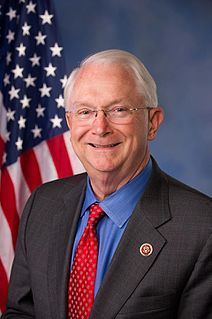A Quote by Ned Lamont
As more and more families decide to build their future in Connecticut, it's vital we invest in housing.
Quote Topics
Related Quotes
The Boston's government approves housing projects every month and we're constantly approving opportunities to build more housing. And Boston is one of the hottest cities in America where people want to live. And it's important that we continue to build this housing and to keep up with the demand that we have in the communities.
The standard of 'affordable' housing is that which costs roughly 30 percent or less of a family's income. Because of rising housing costs and stagnant wages, slightly more than half of all poor renting families in the country spend more than 50 percent of their income on housing costs, and at least one in four spends more than 70 percent.
The new build will play a vital role in the £1billion regeneration project at Longbridge, providing a strong educational element to the employment led mixed-use development. In these trying and difficult times, it is vital that we invest in the future of our community, in the hope that they will continue to take this country from strength to strength.
The point is that families today are spending their money no more foolishly than their parents did. And yet they're five times more likely to go bankrupt, and three times more likely to lose their homes. Families are going broke on the basics - housing, health insurance, and education. These are the kind of bills that you can't just trim around the edges in the event of a downturn.
While it's absolutely important that we build housing for our low-income residents, when we are talking about opening up hundreds of sites for housing, we should be trying to build affordable housing for all of our residents struggling to pay rent. That means housing for teachers, for nurses, for janitors.
I can remember the time when, if we wanted a house or housing, we relied on private enterprise. In fact, Americans built more square feet of housing per person than any other country on the face of the earth. Despite that remarkable accomplishment, more and more people are coming to believe that the only way we can have adequate housing is to use government to take the earnings from some and give these earnings, in the form of housing, to others.
Regardless of the administration or who's in Congress, when you look at the outcomes of what what's been happening, there are opportunities for us to invest in infrastructure, to create more equity, to invest in new technologies, to create future - jobs focused on the future not industries from the past.
The psychology of the saver and the psychology of the investor is very closely connected with Keynes' distinction between risk and uncertainty. When the future is uncertain, he thought that a lot of saving would be directed towards securing, securing more, getting more security in the present, rather than building wealth in the future, which was the classical view, you save in order to invest, in order to consume more later on. What he had called the propensity to hoard or liquidity preference would normally be stronger than the inducement to invest.

































